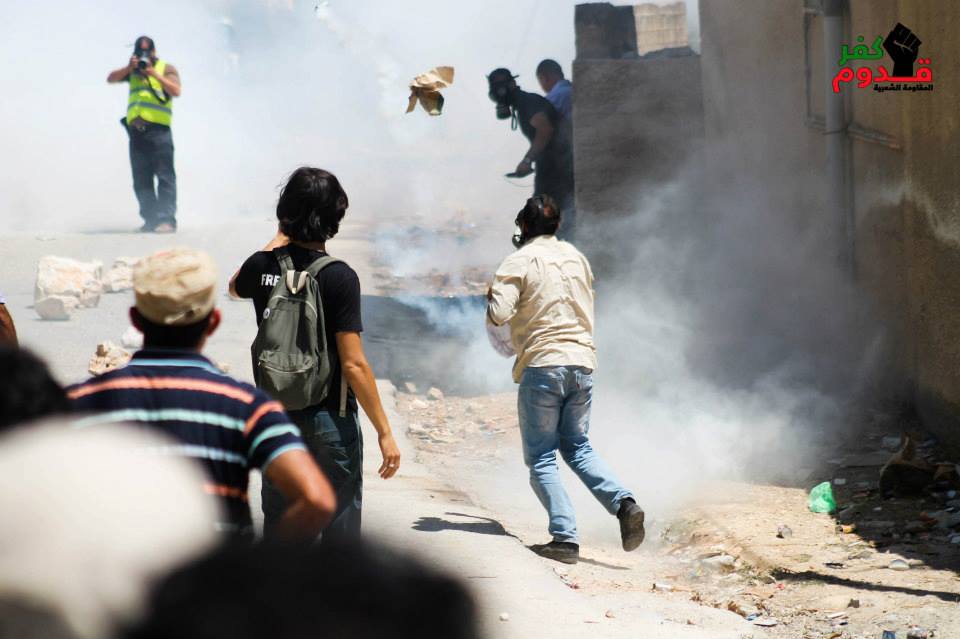Year: 2013
-
Women of Kafr Qaddum: Steadfastness and determination
12th August 2013 | International Solidarity Movement, Nablus Team | Kafr Qaddum, Occupied Palestine In June 2013, a photo depicting Suriah Mahmood from Kafr Qaddum won first prize in a photography compitition in Qatar. International activists met Suriah to talk to her about non violent Palestinian resistance and the village of Kafr Qaddum. The people…
-
Video – Sent to prison for playing with olives
12th August 2013 | International Solidarity Movement, Khalil Team | Hebron, Occupied Palestine On Sunday, 11/08/2013, at approximately 4 o’clock in the afternoon, two activists from Youth Against Settlements (YAS) were arrested. Twenty-one-year-old Abd AlMajeed Bassam Amro, and twenty-year-old Ali Talib Amro were playfully throwing olives at each other when an Israeli soldier came up…
-
Welcome to Palestine: tear gas and coffee
10th August 2013 | International Solidarity Movement, Anna, Nablus Team | Kafr Qaddum, Occupied Palestine I came to Palestine last Tuesday and joined the weekly protest held on Friday the 8th of August in Kafr Qaddum. The demonstration represented non-violent resistance against the land grab and for the freedom of movement in the village. Kafr…


